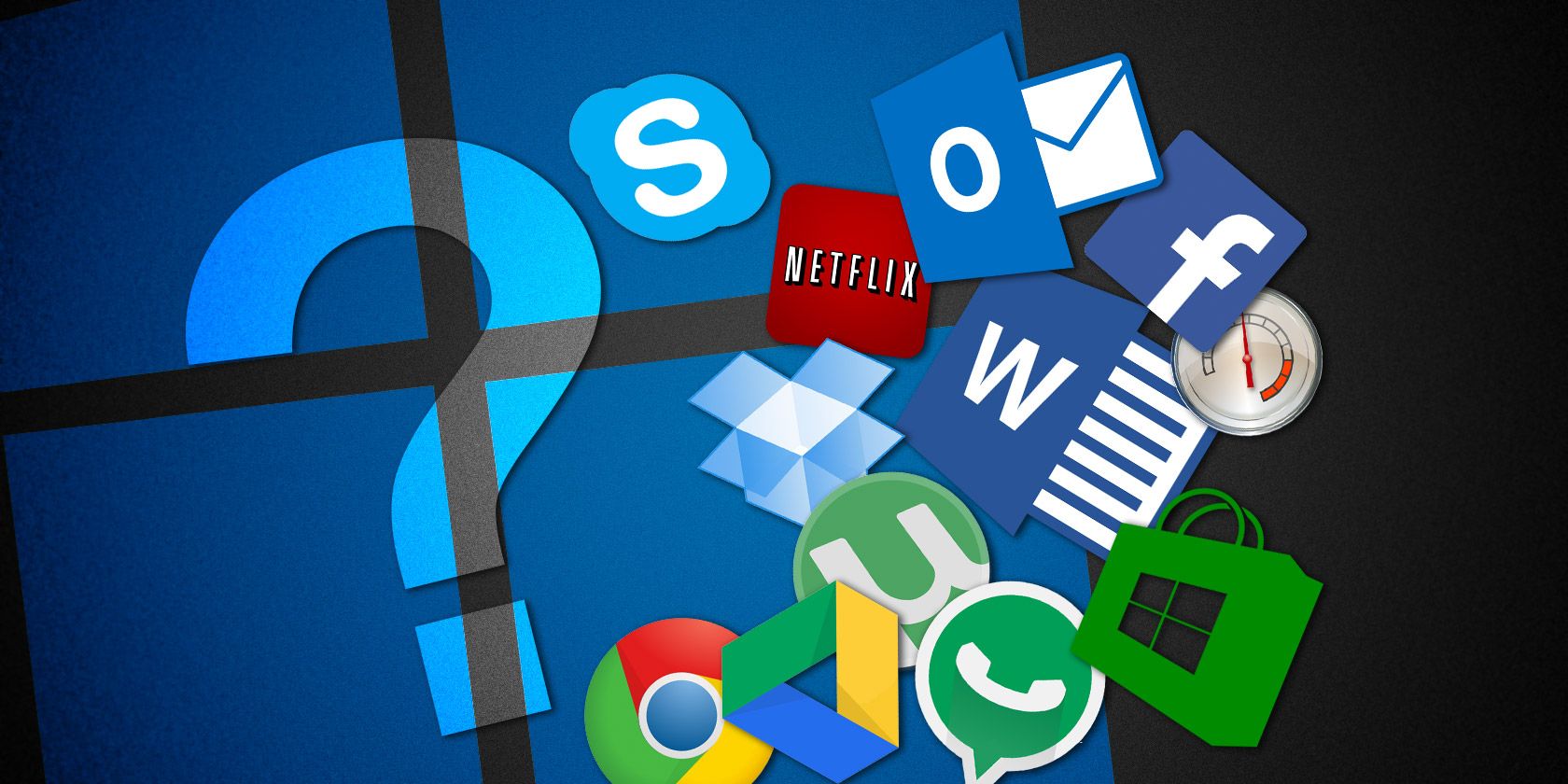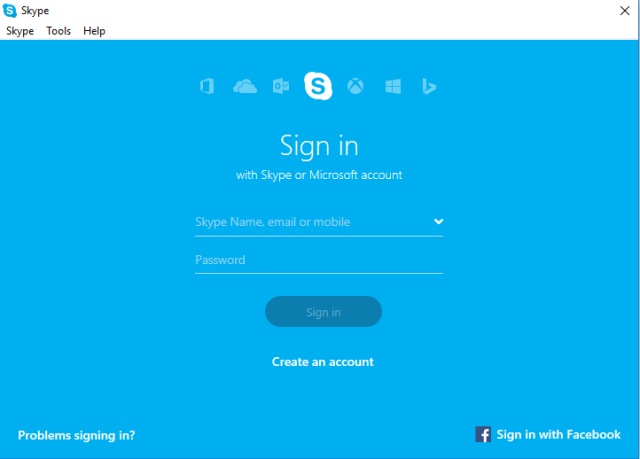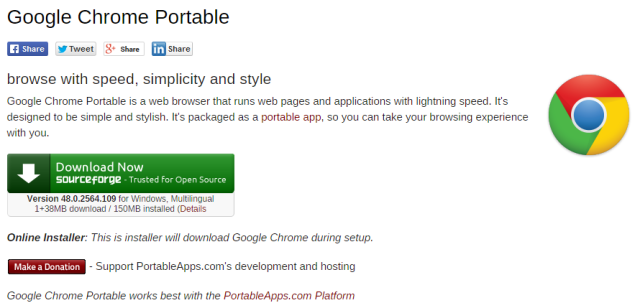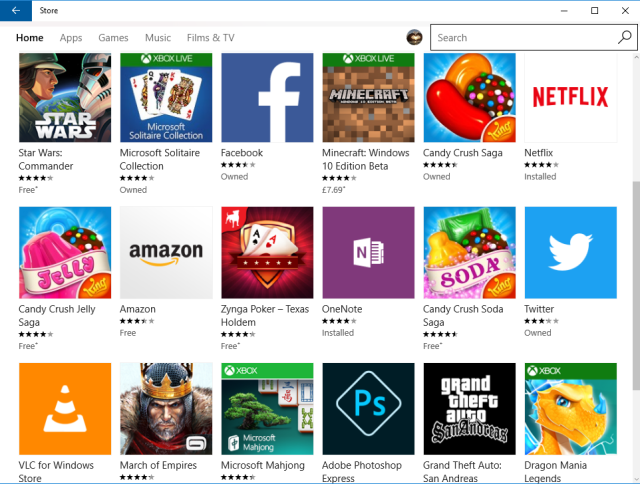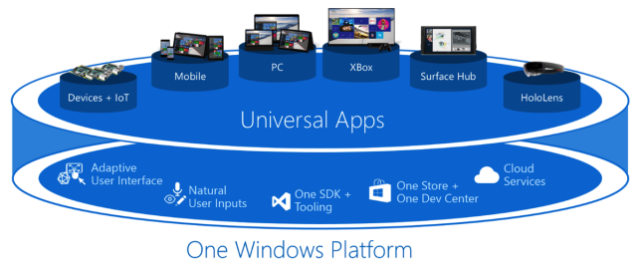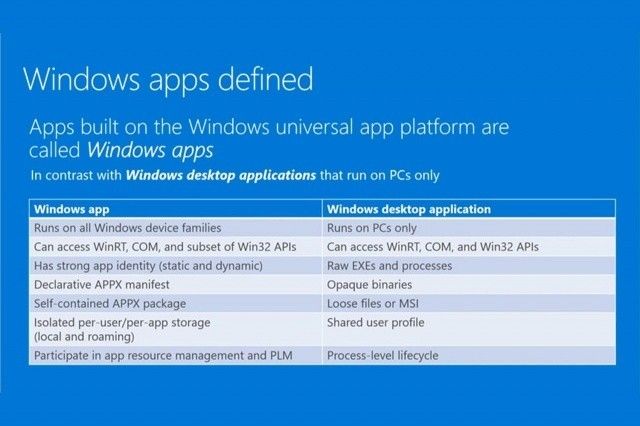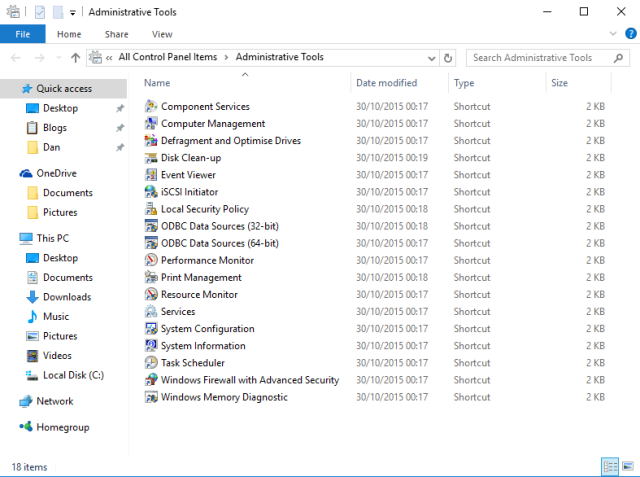Microsoft seemingly loves to make things confusing – you need to look no further than all the various naming conventions of Outlook and Hotmail for proof.
As the amount of technology at our fingertips continues to grow, so too do the endless terms and designations applied to the software we use every day.
Can you explain the difference between an app and an applet? How about between a Windows Store App and a Universal App?
Don't worry if you can't; MakeUseOf is here to help!
Program vs. App
Before the advent of smartphones, the term "app" had barely entered our technology lexicon, and software that you installed on your computer was normally referred to as a program or an application. They were both shortened versions of "application program", which is the correct term for any computer software that performs a group of coordinated functions.
The word "app" has largely replaced "program", at least in the minds of the public – but it can be argued that some subtle differences remain.
The differences are technical, as highlighted by these interpretations:
- A program is a set of instructions that can be executed on a computer, while an app is a piece of software which allows someone to perform a desired task.
- A program could be a piece of code that implements a logic, and can be part of an app, component, service, or another program.
- An app is dependent on an operating system in order to function, whereas the BIOS and operating system -- both types of software -- interact directly with the machine's hardware.
When using "app", make sure you understand and differentiate desktop apps from smartphone/tablet apps – the two are not cross-compatible.
Examples of a desktop app: Almost everything you interact with on a day-to-day basis is a desktop app, whether that's Microsoft Office, a desktop email client, or a computer game. Desktop apps will also (usually) run on legacy versions of Windows, unlike Windows Apps (which we'll come to shortly).
Now we've cleared that up, let's take a look at some of the other common naming designations that you're likely to come across.
Portable App
In simple terms, a portable app can be carried around with you on either a USB stick or a flash drive. It doesn't need to be rooted in an operating system and can be executed straight from its storage location. Hence, a portable app can be moved from one computing environment to another, and can be uploaded (and often used) from cloud storage services such as OneDrive, Google Drive, and Dropbox.
From a technical perspective, a portable app does not need to be installed and does not put associated files and configuration information on the host device. Furthermore, it does not require additional software to be installed and is entirely self-contained in a single directory.
Examples of a portable app: Some of the best are portable versions of Musicbee, uTorrent, GIMP, and Skype. Hundreds of high-quality portable apps are available, from image editors to security tools, and from music players to browsers.
Windows Store App
The definition of a Windows Store App is more straightforward – it is an app that has been downloaded directly from Microsoft's Windows Store.
The apps first came to prevalence in the much-maligned Windows 8, and although initially choices were limited and the quality was suspect, they have since developed into a strong alternative to typical desktop computing. Lots of widely-used desktop apps now have a Windows Store App version available as well.
While the definition might be simple, the name is not. They were originally called Metro Apps, but after the threat of a lawsuit from a German company with the same name, they were re-branded as Windows 8 Apps. Since then, they've also been called Modern Apps and Universal Apps – none of which were overly successful.
The key point to understand about Windows Store Apps is that they'll definitely work on desktop versions of Windows 8, Windows 8.1, and Windows 10. They might also work on other Windows-based platforms (such as mobiles and tablets), but it's not guaranteed.
Examples of a Windows Store App: Microsoft Solitaire Collection, Netflix, Skype (again), Facebook.
Windows Apps (aka Universal Apps)
Even though the term "Universal Apps" no longer refers to all Windows Store Apps, it hasn't left the Microsoft lexicon entirely.
Today, "Universal Apps" -- or "Windows Apps" as they've been called since mid-2015 -- are similar to Windows Store Apps, but have one key difference: they can run on all Windows platforms, especially on Windows 10 (desktop) and Windows 10 Mobile.
Yes, we're confused, too.
From a technological standpoint, all Windows Apps are built on the Universal Windows Platform (UWP) and are designed to give users a consistent experience on all their devices. Microsoft has called this "Continuum", meaning that an app will recognize aspects such as screen size and availability of peripherals (keyboard, mouse, etc) and adjust it's behavior accordingly.
You can see some of the other key technological differences in the image below:
So - to summarize:
- Windows Desktop Application: Will only run on the full desktop version of Windows.
- Windows Store App: Will run on desktop versions of Windows 8, 8.1, and 10, and might work on other platforms.
- Windows App (Universal App): Will run on all Windows versions and platforms since Windows 8.
Windows Phone Apps
In case anyone actually managed to understand the above classifications, Microsoft initially decided to further complicate matters by subdividing the Windows Store and introducing the Windows Phone Store.
Thankfully, that store was abandoned in Q4 of 2015 and the Windows Store became a homogenized offering across all devices. It also swallowed up the Xbox Video and Xbox Music stores, and it's now Microsoft's main shop front for all apps, music, video, and other downloadable content.
Despite the homogenization, some phone apps still live on in their own little bubble and can only run on Windows phones – they are not "universal" like a true Windows App.
Worryingly, more apps are now being removed than added. 2015 saw American Airlines, Chase Bank, Bank of America, NBC, Pinterest, Mint, and Kabam all discontinue their releases.
With news of disappointing sales and rumors of the Lumia line coming to an end, we might not see this category as a separate distinction for too much longer.
Examples of a Windows Phone App: WhatsApp, Flipboard, Viber, Facebook.
Tools
Tools, or "system tools", typically perform an administrative task on a computer. They are normally built-in and do not require installing.
They are accessible either through Start > Control Panel > Administrative Tools or via a run command.
Examples of a Tool: Resource Monitor, Disk Defragment, Event Viewer, Disk Clean-Up.
What Names Confuse You?
This article only scratches the surface of the differences between all the classifications. If you struggle to grasp a particular term or name you can let us know in the comments below, we'll do our best to explain it to you.

